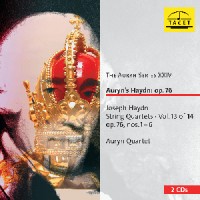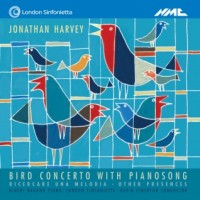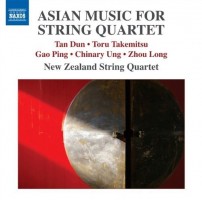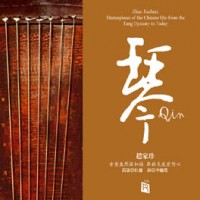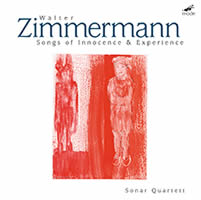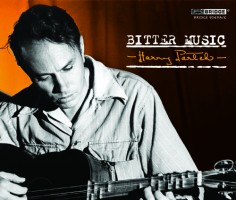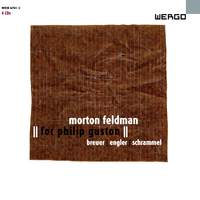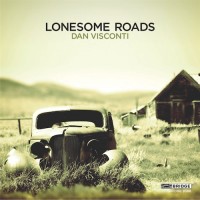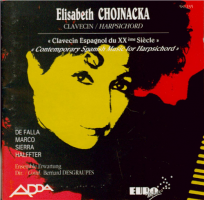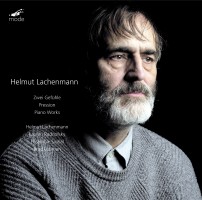Taking Random for a Walk
|
Mike Silverton [January 2013.] My too-early listening – at a low volume setting so as not to disturb Best Beloved – includes late-Feldman anything and, these days especially, Haydn’s string quartets most handsomely performed on the Tacet label by Auryn Quartet. I recommend beginning with Op. 76’s six masterworks (Tacet 01820, two CDs). The third of this set includes the tune Germany adopted as Deutschland über Alles. The lifelike textures and dimensions of these nonpareil readings are much enhanced by a device I’ve mentioned, and will continue to mention, often: Acoustic Revive’s RR-777 Schumann Resonance Generator, the most effective tweak I’ve ever encountered. No empty statement, that – I’ve lived with more than a few. (I just changed “dozens” to “more than a few” as a hedge against inflation. I’d have to abuse my enfeebled memory to arrive at an accurate count. Further, one would need to define tweak. Does something as basic as a component platform qualify? Strictly speaking, perhaps.) Mark Stevens, in reviewing a book about Leo Castelli, observes that the dealer would “characteristically describe an artist’s work in the most general terms – new, great, important, wonderful, and so on.” In embracing a strategy of celebratory non-specificity I propose to skirt the arduous task of meaningful discussion. You’ve been warned. An especially well-recorded CD on NMC, the label devoted to mostly living British composers, provides a delightful entertainment: Jonathan Harvey’s charming Bird Concerto with Pianosong (NMC D177) for recorded bird song, piano, and orchestra (Hideki Nagano, piano; the London Sinfonietta, David Atherton conducting). Despite a tendency to wander, the half-hour concerto is the disc’s great attraction. Interesting Harvey items complete. (In the midst of these remarks, Grant sent Harvey’s obituary, in which Bird Concerto is mentioned, along with other of the composer’s accomplishments.) Naxos CD 8.572488, Asian Music for String Quartet (Zhou Long’s 1982 Song of the Ch’in; Chinary Ung’s 1990 Spiral III; Gao Ping’s 2007 Bright Light and Cloud Shadows; Toru Takemitsu’s 1981 A Way a Lone; Tan Dun’s 1986 Eight Colors), performed, as far as I can determine, flawlessly by the New Zealand String Quartet, offers a wealth of endearing exotics. Zhou Long’s Song of the Ch’in hews closest to its roots with a tasteful mimicry of the venerable qin, a sonorous, zither-like instrument. Takemitsu’s A Way a Lone is uncharacteristically dark. In contrast, Tan Dun’s luminously succinct Eight Colors delights. For a handsomely recorded qin recital on new and ancient instruments, go to Rhymoi Music RMCD 1026, Masterpieces of the Chinese Qin from the Tang Dynasty to Today, performed by Zhao Jiazhen. You might have trouble scoring this beautifully packaged Chinese disc. It’s worth the search. Walter Zimmermann gives me pause touching at times on retreat. The man’s music wanders hither and yon in roughly modernist guise oblivious to consistency or allegiance to coteries. A few of the pieces among mode’s three discs I cannot bear. Others enthrall. Yet others puzzle in not unpleasant ways. A just-released two-CD set, mode 245/6, is for this listener the most engaging, not least for Zimmermann’s Fränkische Tänze (Franconian Dances), for string quartet with drone quartet (for these sessions an overdub by the principal performers, the Sonar Quartette – a live performance would call for two quartets). The fabulously spooky folk-based morsels enchant the ear as a concoction of hurdy-gurdy, harmonium, and wallflower calliope. The dances appear twice, the second go-round differing but slightly from the first. Again for string quartet, Keuper nicely dismantles another folksy cluster. Zimmermann’s own notes reveal a taste for the distant past. For example, Festina Lente (Hurry Slowly) sets out to depict a Renaissance oxymoron as illustrated by a lumbering tortoise attached to whose shell is a mast in full sail. If this all sounds intriguingly strange, I’ve conveyed the impression I’ve tried to make. Well worth looking into. And well recorded. A must-have for Harry Partch fans and a pretty good bet for the less engrossed: a reading of a rescued Partch diary relating the hobo-composer-instrument inventor’s activities in 1935-36, seasoned with relevant songs (Bridge 9349 A/C, three CDs, Music of Harry Partch, Volume 1). See http://www.bridgerecords.com/ for other of the label’s excellent Partch releases. A superb performance of For Philip Guston runs for four-plus hours on four Wergo CDs (WER 67012). Julia Breuer (piccolo, flute, alto flute), Mathias Engler (glockenspiel, vibraphone, tubular bells, marimba), and Elmar Schrammel (piano, celesta) infuse this maniacally long masterwork with enchantments that set it a wee bit apart from likewise fine performances on hatART 4-61041/2/2/4, with Eberhard Blum, Jan Williams and Nils Vigeland; DOG W/A BONE DWAB02, with Peter Kotik, Chris Nappi and Joseph Kubera; and Bridge 9078A/D, with Dorothy Stone, Arthur Jarvinen and Gloria Cheng-Cochran. All well recorded – which is really quite important. Feldman’s music is as much about decays and the spaces between attacks as not. With respect to traditional sonorities, the man was a connoisseur. “Extended technique” held no interest. Just arrived, two beauties from Bridge: Danish pianist Ole Kiilerich’s lusty yet handsomely sculpted performance of The People United Will Never Be Defeated!, the leftist Chilean anthem Frederic Rzewski divided into 38 moments that impinge on and depart from the rousing tune. I have several CDs to compare. This well recorded, readily available reading stands with the best. Bridge 9392. The other Bridge goody: Dan Visconti’s Lonesome Roads, nine pieces for small ensembles and soloists the disc’s annotator aptly describes as “infused with the directness of expression and maverick spirit of the American vernacular.” Visconti mines a wide swath of home-grown idioms with humor, craft, abandon and several stretches of unapologetic sentimentality, accomplished throughout with consummate aplomb. The Scharoun Ensemble Berlin, with guest performers from the Berlin Philharmonic, captures the music’s spirit as if Yankee to the bone. Excellent sound. Bridge 9386. In these occasional motleys I propose commending antiques, which is to say, CDs issued years ago. I begin (giving its title in English) with Contemporary Spanish Music for Harpsichord, with the Polish soloist Elisabeth Chojnacka (which my Polish-American wife tells me is pronounced Hoinotzka), Adda 581235. The thing of it is, when I first listened to this 1990 disc I found it overblown in an unflattering hi-fi sense. Having played it now several times through, I can’t understand how I came to that conclusion. The program, with Ensemble Erwartung, Bernard Desgraupes conducting, is consistently engaging and nicely recorded: De Falla’s wonderful Concerto for Harpsichord and Five Instruments, with similarly fine pieces by Roberto Serra, Thomas Marco and Cristobal Halffter completing the program. You’ll probably have a difficult time locating this one. Brian Brandt’s mode CD 252, issued in 2012, joins my Helmut Lachenmann collection as among the best. The work that sets the disc apart is a performance of „…Zwei Gefühle…“, Music mit Leonardo, for speaker and ensemble. The composer recites Leonardo’s words, often fractured and as whispered noises. The New York-based Ensemble Signal, Brad Lubman conducting, turns in a rather more vivid (and vividly recorded) performance than the same work and speaker on a 1991 Kairos CD (0012202KAI). In terms of recording and Lachenmann’s requirements, his particulate sounds call for a sense of space and detail this mode CD provides in abundance. To perform Lachenmann well musicians must be willing to abandon precepts and training. With either disc, we’re fortunate to have a major 20th-century work with its composer as principal performer. I would think it, in this regard, difficult to surpass, with my preference, as mentioned, going to the mode, which includes Lachenmann’s solo-piano performances of Weigenmusik, Ein Kinderspiel and Guero, and Pression, for much-belabored cellist (Lauren Radnofsky), cello and listener.
Feldman, Harvey, Haydn, Lachenmann, Partch, Rzewski, Takemitsu, Tan Dun, Ung, Visconti, W Zimmermann, Zhou Long
[More Mike Silverton]
[More
Feldman, Harvey, Haydn, Lachenmann, Partch, Rzewski, Takemitsu, Tan Dun, Ung, Visconti, W Zimmermann, Zhou Long]
[Previous Article:
Four, </br>Four Tom, </br>Four Tom John, </br>Four Tom Johnsons]
[Next Article:
EA Bucket 15.]
|
